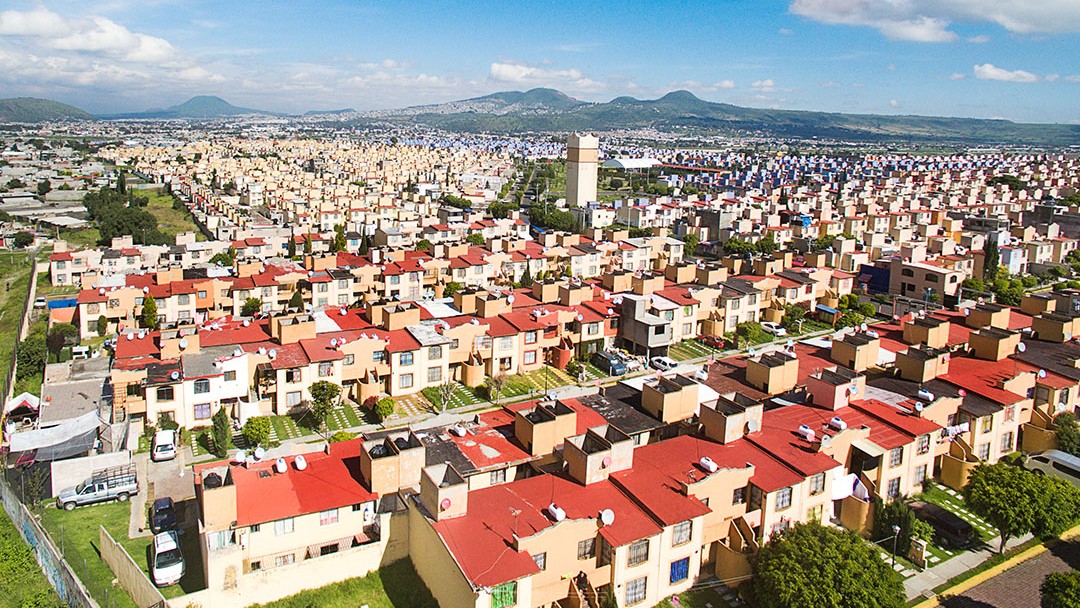
Apart from digitalisation, the transition to sustainable forms of energy and the elimination of the combustion engine are probably the greatest watersheds since the Industrial Revolution. KfW actively supports this transition, always keeping its eye on the next steps.
Whether in schools or hospitals, companies or shops, for lighting, cooling or heating – and recently increasingly for mobile phones and computers – energy has become an essential part of our lives. This applies to wealthier developed countries in any case, but also increasingly holds true for poorer nations that can only drive their economic development with more energy. To ensure that global temperatures do not simultaneously rise to an uncontrolable level, growing energy demands need to be covered with climate-friendly sources: wind, solar, hydro, geothermal, or biomass. So nearly all countries in the world have set concrete targets for expanding renewable energy sources within the scope of the Paris Agreement. And developing countries in particular have especially good conditions to do this. The African continent, for instance, has enormous potential to use solar, wind, hydro and geothermal power, but has only tapped into a fraction of this potential to date.
However, because initial investments in energy infrastructure are very high, developing countries in particular need support when introducing or transitioning to renewable energy sources. As a promotional bank, KfW is driving this transition at a global level and has committed nearly EUR 6 billion to it in the past five years alone. One example is the largest solar power plant in Africa, which is currently being built in the Moroccan city of Ouarzazate and is already producing green electricity for 400,000 people. When the entire complex is completed one day, the amount of power will triple again and will then meet the needs of more than 1.3 million people. But KfW is also promoting solar energy in Brazil and El Salvador; wind farms have been built in Egypt, and geothermal plants have been established in Kenya and Indonesia. And those are just a few examples from KfW Development Bank’s extensive portfolio in the energy sector. However, the energy supply from renewable sources fluctuates because the wind does not always blow and the sun does not always shine with the same intensity. And power can often not be generated where it is needed most. So suitable storage and grids are needed at the same time to help supply electricity in the necessary amount and quality, at the desired location and at the right time. KfW also participates in expanding and modernising grid infrastructure and management, for example by providing EUR 1.4 billion on behalf of the BMZ for co-financing the so-called “green corridors“ in India designed to transport sustainable energy to the country’s economic centres.
Energy that is not consumed in the first place cannot damage the climate. This fact means that the issue of energy efficiency is also of major importance. The International Energy Agency (IEA) views it as one of the most underestimated resources too, and designates energy efficiency as the world’s “first fuel”. Energy can be used more wisely nearly everywhere in the world: the potential for increasing efficiency in developed countries is estimated at 20%. In developing countries and emerging economies, the potential savings are estimated at up to 85% due to the higher energy intensity depending on the sector and stage of development. Similar to the situation in Germany where KfW’s efficiency programmes have set standards, KfW also promotes more efficient use of energy abroad: in buildings, power plants and grids. One example is a programme in Mexico called EcoCasa which is being used to help build eco-homes for poorer families. Since the programme’s inception, environmentally friendly homes have been built for over 100,000 people in all of Mexico’s climate zones. KfW has been one of the largest financiers in the area of renewable energy sources and energy efficiency around the world for many years. And in doing so, it does more than simply invest large sums: KfW also develops ideas, concepts and approaches and realises them together with its partners, usually on behalf of the German Federal Government.
Share page
To share the content of this page with your network, click on one of the icons below.
Note on data protection: When you share content, your personal data is transferred to the selected network.
Data protection
Alternatively, you can also copy the short link: https://www.kfw-entwicklungsbank.de/s/enzBXVuL
Copy link Link copied